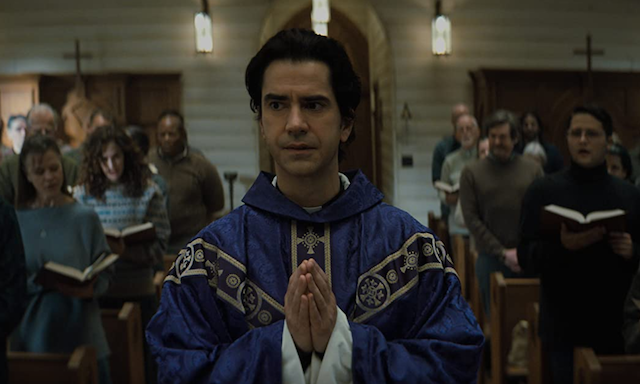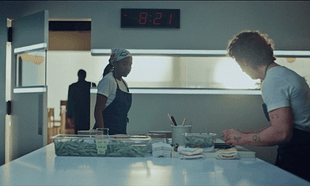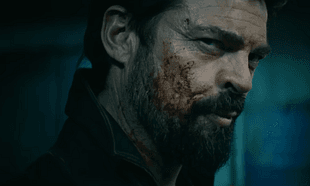Reviewing something like 'Midnight Mass' can be difficult, because you want people to see it, but you want people to see it in the way you - as a reviewer - saw it.
That is to say, completely bereft of any kind of foreknowledge. That said, it's easy enough to do these days, such is the glut of TV shows, movies, podcasts, that you could very easily ignore the mass of it and pick and choose as you go. But more than that, you want to be able to go in without any kind of preconceived notions. Mike Flanagan has built a steady career of emotionally wrought horrors, and has made two of the strongest Stephen King adaptations in years - 'Doctor Sleep', the sequel to 'The Shining', and 'Gerald's Game' with Carlo Gugino and Bruce Greenwood for Netflix. Right there, with that knowledge, you go into 'Midnight Mass' expecting that emotionally wrought horror and, sure enough, that's what you get.
What's frustrating about 'Midnight Mass' is that for the first three episodes, it exists in this kind of liminal space where we're not fully sure what's happening. The ambiguity of it is fascinating, not to mention how 'Midnight Mass' deals with religiosity, rationalism, faith, science, personal accountability versus divine intervention, and all of it is done through a very human lens. Zach Gilford's character is a husk, and the scenes he shares with the charismatic young priest, Hamish Linklater, are powerfully done in their minimalism. It's just the two of them, knocking it back and forth, and you can really see the time and effort writer / director Mike Flanagan has put into getting these two actors to absorb their characters. Throughout these episodes, the groundwork is being laid for something to be revealed and you can feel it coming, slowly but surely, but when it does happen, chances are it's going to split people right down the middle.
Maybe it's just Irish audiences would know not to trust anything relating to Catholicism out of hand, but there's something in The Big Reveal™ that feels a little bit too obvious. Initially, when it happens, it almost feels like something of a cop-out. But, it's to the credit of the writing that as it progresses into the fourth and fifth episode, you begin to understand that there's a lot baked into Catholicism and religion generally that could easily be misconstrued in such a way as to allow someone into the way of thinking that the priest character has. More than that, you can see how others get sucked in as well. This is the core of what 'Midnight Mass' is about - that, on a surface level, religion and faith can be of service to people and it can provide a measure of comfort and solace to those who need it. Yet, because it's people, and people are people, that then becomes shifted and turned into something terrible.
Like 'The Haunting of Hill House' and 'Bly Manor', there's a stately pace to how the story unfolds and you'll often find an episode zeroes in on a two-hander scene between Kate Siegel and Zach Gilford, or Hamish Linklater. Far and away, Hamish Linklater gives a stunning performance as the priest and you can't help but be swept up in it all as the people on the island are. Likewise, Zach Gilford's performance is harrowing in its vulnerability, while Samantha Sloyan is just aggravatingly self-righteous in the role of Bev. The melodrama can get too much at times, and there's a lot of 'Midnight Mass' that gets way too heavy-handed after the third episode. Yet, by all accounts, 'Midnight Mass' is a darkly familiar fable of the hope and loss of faith in modern times.










































































